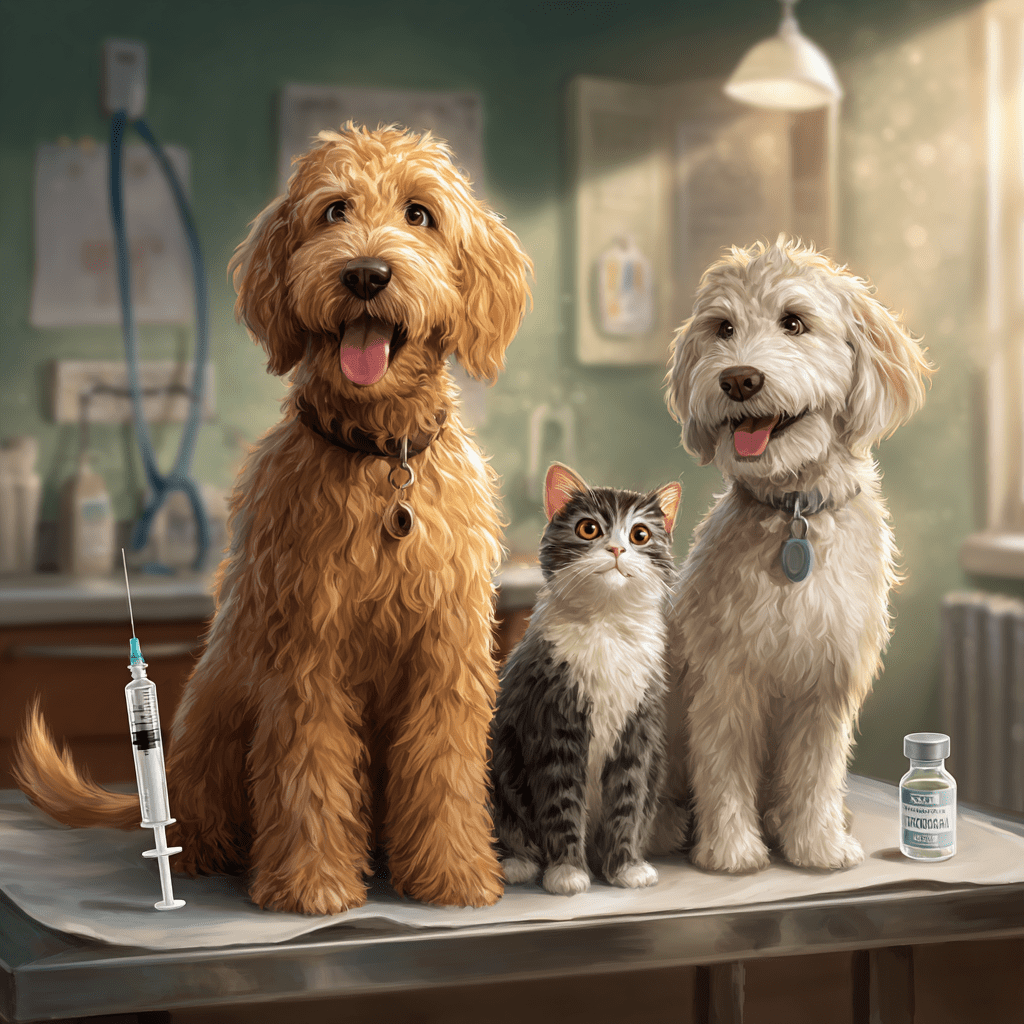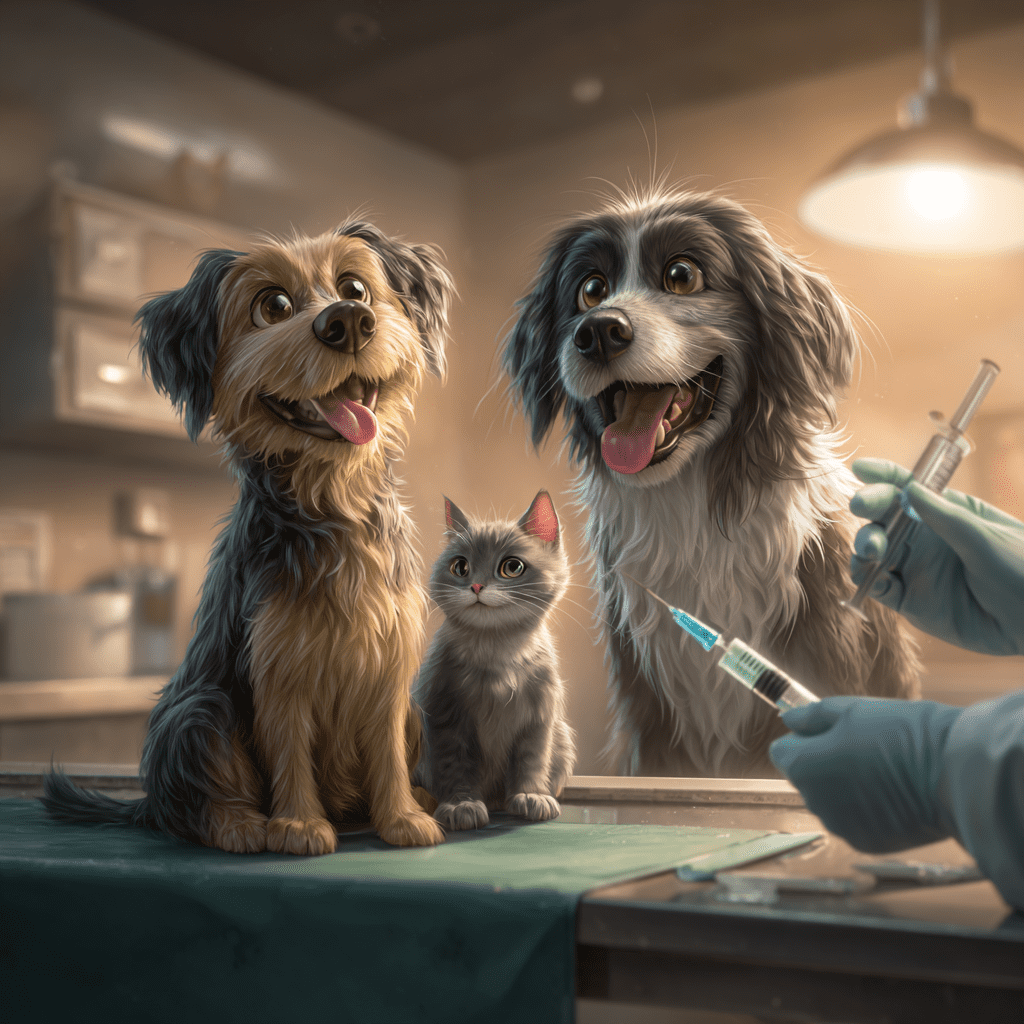Introduction
Vaccinations are one of the most important steps you can take to ensure your pet lives a long, healthy life. Just like humans, pets are susceptible to contagious diseases — many of which can be life-threatening if not prevented through timely immunization. Whether you’ve just welcomed a new puppy, kitten, or adopted an older pet, knowing what vaccines they need and when to get them is key to being a responsible pet parent.
This comprehensive guide will walk you through the basics of pet vaccines, the difference between core and non-core vaccines, common side effects, vaccination schedules for dogs and cats, and tips for stress-free vet visits.
1. Why Are Vaccines Important for Pets?
Vaccines help stimulate your pet’s immune system to recognize and fight off specific diseases before they become serious threats. Some of these diseases are fatal, while others can cause long-term complications. By vaccinating your pet, you not only protect their health but also help reduce the spread of diseases to other animals — and in some cases, even humans.
In the United States, some vaccinations (like rabies) are required by law.
2. Understanding Core vs. Non-Core Vaccines
Not all pets need the same vaccinations. Veterinarians divide them into two main categories:
Core Vaccines
These are considered essential for all pets due to the risk and severity of the diseases they prevent.
Dogs:
- Rabies
- Canine Parvovirus
- Canine Distemper
- Canine Adenovirus (Hepatitis)
Cats:
- Rabies
- Feline Calicivirus
- Feline Herpesvirus (FHV-1)
- Feline Panleukopenia (FPV)
Non-Core Vaccines

These are given based on your pet’s lifestyle, environment, and risk of exposure.
Dogs:
- Bordetella (Kennel Cough)
- Lyme Disease
- Canine Influenza
- Leptospirosis
Cats:
- Feline Leukemia Virus (FeLV)
- Chlamydia
- Bordetella
Always consult your vet to determine the right combination for your individual pet.
3. Puppy & Dog Vaccination Schedule
Getting your puppy vaccinated on schedule builds their immunity at the most critical stages of development.
Puppy Vaccination Timeline:
| Age | Vaccine |
|---|---|
| 6–8 weeks | DHPP (Distemper, Hepatitis, Parvovirus, Parainfluenza) |
| 10–12 weeks | DHPP booster, Leptospirosis (if needed) |
| 12–16 weeks | Rabies, DHPP final booster |
| 16+ weeks | Optional: Bordetella, Lyme, Influenza |
| 1 year | Rabies (1 or 3-year), DHPP booster |
Adult Dogs:
- Annually or every 3 years: Depending on the vaccine type.
- Rabies: Usually required every 1–3 years by law.
4. Kitten & Cat Vaccination Schedule
Kittens, like puppies, need a series of vaccines to build proper immunity.
Kitten Vaccination Timeline:
| Age | Vaccine |
|---|---|
| 6–8 weeks | FVRCP (Feline Viral Rhinotracheitis, Calicivirus, Panleukopenia) |
| 10–12 weeks | FVRCP booster |
| 12–16 weeks | Rabies, FeLV (if at risk) |
| 1 year | FVRCP & Rabies booster |
Adult Cats:
- FVRCP: Every 1–3 years
- Rabies: Yearly or triennially depending on state laws
- FeLV: For at-risk cats (outdoor or multi-cat households)
5. What Happens at a Vaccine Appointment?
Most vaccination appointments are quick and straightforward. Here’s what typically happens:
- A full physical exam is conducted to ensure your pet is healthy enough for the shot.
- The vet will explain the type of vaccine and administer it.
- A record is created for your pet’s vaccination history (keep this handy for travel, grooming, or boarding).
- The vet may recommend staying in the office for 10–15 minutes after the shot to monitor for any adverse reactions.
6. Are There Side Effects from Vaccinations?
Vaccines are generally safe, but like any medical treatment, side effects can happen. Most are mild and temporary:
Common Side Effects:
- Soreness at the injection site
- Mild fever
- Fatigue or sleepiness
- Loss of appetite
Rare Side Effects:
- Vomiting or diarrhea
- Facial swelling
- Hives or itchy skin
- Collapse (emergency)
If your pet shows any severe symptoms or if mild symptoms persist for more than 24 hours, contact your vet immediately.
7. Tips for a Stress-Free Vet Visit
Going to the vet doesn’t have to be scary for your pet. Try these tips to make vaccine appointments smoother:
- Bring treats and toys for comfort.
- Get your pet used to being handled at home.
- Use a calm, reassuring voice during travel and in the clinic.
- Schedule visits during quieter times.
- Ask about mobile vet services if your pet gets anxious in clinics.
8. Keep Your Records Organized
Keep a folder (physical or digital) with your pet’s vaccination history, vet visits, and reminders. This is crucial for:
- Boarding and travel
- Emergencies
- Changing vets
- Local laws and community health regulations
Conclusion
Vaccinating your pet is one of the most important ways you can protect their health and ensure a long, happy life. By sticking to a consistent schedule and working with your vet, you’re giving your furry friend the best defense against preventable diseases.
Whether you’re a first-time pet parent or a seasoned animal lover, understanding pet vaccinations helps you make informed, proactive decisions about your companion’s well-being.
